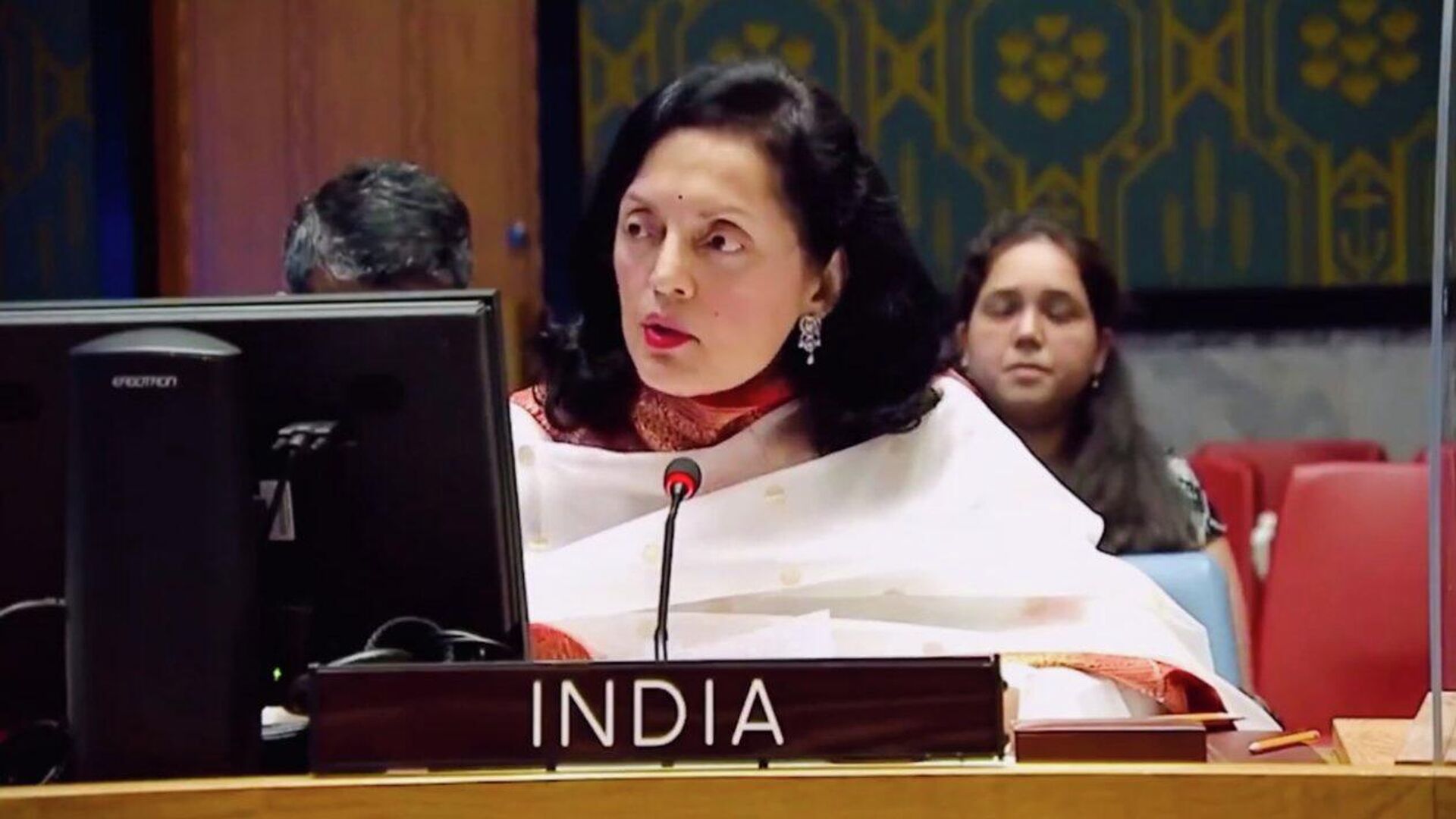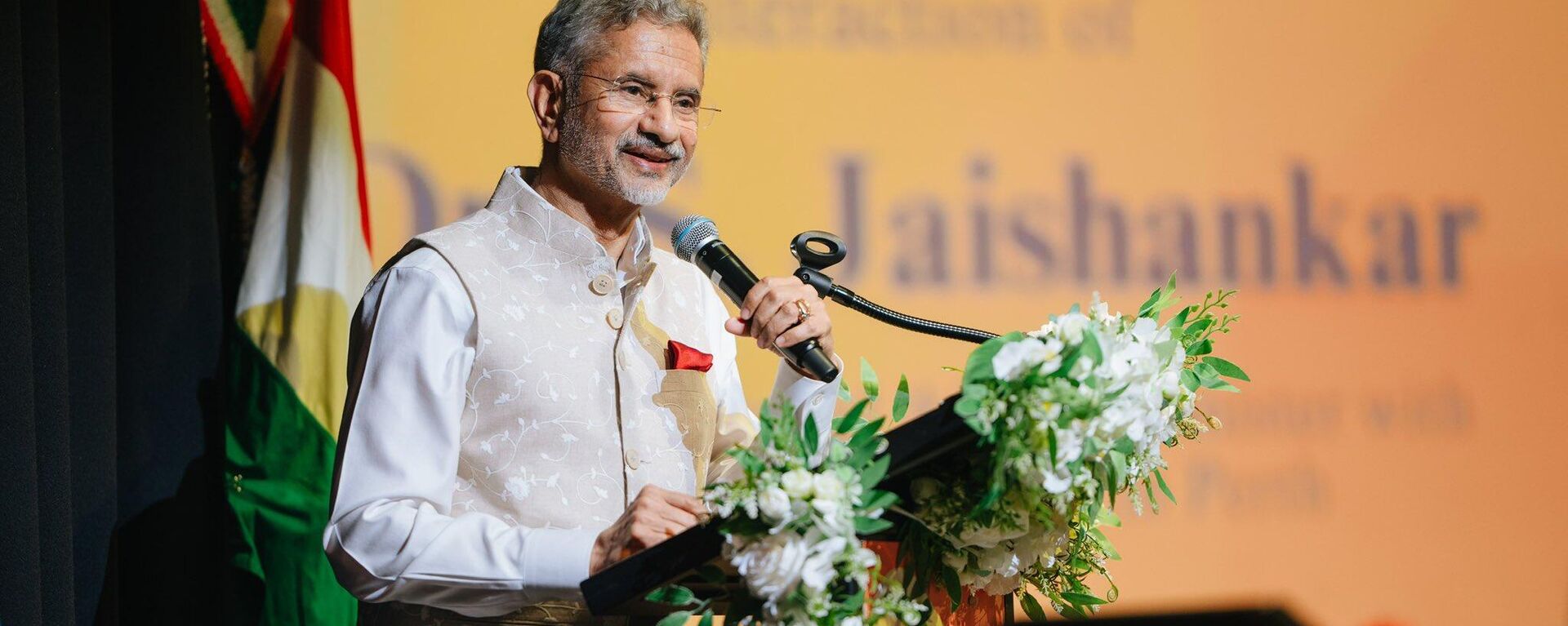https://sputniknews.in/20240416/india-calls-for-starting-text-based-negotiations-to-produce-zero-draft--7143495.html
India Calls for Starting Text-Based Negotiations to Produce ‘Zero Draft’
India Calls for Starting Text-Based Negotiations to Produce ‘Zero Draft’
Sputnik India
New Delhi has said that the 'Elements Paper', which captures the views of various nations on the question of UNSC reforms, could become the "basis" of text-based negotiations.
2024-04-16T12:31+0530
2024-04-16T12:31+0530
2024-04-16T12:31+0530
india
new delhi
africa
the united nations (un)
un security council (unsc)
ruchira kamboj
narendra modi
global south
latin america
north africa
https://cdn1.img.sputniknews.in/img/07e6/0c/14/158496_0:0:1265:712_1920x0_80_0_0_c2e07ac64724c235d167c1ad7ff7fb44.jpg
India has called for starting text-based negotiations as part of the inter-governmental negotiations (IGN) to produce a ‘zero draft’ in a fixed time frame towards reforming the United Nations Security Council (UNSC).Addressing the Inter-Governmental Negotiations (IGN) meeting on Security Council Reform on Co-Chairs Elements Paper at the UN headquarters on Monday, Indian Permanent Representative (PR) to UN, Ruchira Kamboj, stressed on the need for forging a ‘consensus’ on various "clusters" before moving to the text-based negotiations.Kamboj also highlighted the importance of referring to various previous documents produced over the years as part of the IGN process, including the '2015 Framework Document' and previous iterations of the Elements Paper.India in Favour of Expanding Permanent and Non-Permanent Categories: KambojThe Indian diplomat said that New Delhi was in favour of "expansion of UN Security Council membership in both the permanent and non-permanent categories" to make it more legitimate, representative, responsive and effective.Kamboj said that New Delhi's position was supported by a majority of the UN member states.She rejected the argument that expansion of the permanent category of UNSC membership would be "undemocratic".She also said that the UN wasn't discussing which particular member states would occupy the newly-created permanent seats at this stage, stating the focus was on developing a "framework" for creating new permanent seats.
https://sputniknews.in/20240210/jaishankar-asserts-indias-path-to-unsc-seat-wont-be-easy-6510961.html
india
new delhi
africa
global south
latin america
north africa
south africa
south asia
Sputnik India
feedback.hindi@sputniknews.com
+74956456601
MIA „Rossiya Segodnya“
2024
Dhairya Maheshwari
https://cdn1.img.sputniknews.in/img/07e6/0c/13/138962_0:0:641:640_100x100_80_0_0_2cb44360dbcdf6d84bf4b299cd045917.jpg
Dhairya Maheshwari
https://cdn1.img.sputniknews.in/img/07e6/0c/13/138962_0:0:641:640_100x100_80_0_0_2cb44360dbcdf6d84bf4b299cd045917.jpg
News
en_IN
Sputnik India
feedback.hindi@sputniknews.com
+74956456601
MIA „Rossiya Segodnya“
Sputnik India
feedback.hindi@sputniknews.com
+74956456601
MIA „Rossiya Segodnya“
Dhairya Maheshwari
https://cdn1.img.sputniknews.in/img/07e6/0c/13/138962_0:0:641:640_100x100_80_0_0_2cb44360dbcdf6d84bf4b299cd045917.jpg
un reforms, unsc reforms, unsc permanent seat, india unsc, multilateral reforms, modi news, india news, unsc veto power, unsc permanent members, unsc india
un reforms, unsc reforms, unsc permanent seat, india unsc, multilateral reforms, modi news, india news, unsc veto power, unsc permanent members, unsc india
India Calls for Starting Text-Based Negotiations to Produce ‘Zero Draft’
New Delhi has said that the 'Elements Paper', which captures the views of various nations on the question of UNSC reforms, could become the "basis" of text-based negotiations.
India has called for starting text-based negotiations as part of the inter-governmental negotiations (IGN) to produce a ‘zero draft’ in a fixed time frame towards reforming the United Nations Security Council (UNSC).
Addressing the Inter-Governmental Negotiations (IGN) meeting on Security Council Reform on Co-Chairs Elements Paper at the UN headquarters on Monday, Indian Permanent Representative (PR) to UN, Ruchira Kamboj, stressed on the need for forging a ‘consensus’ on various "clusters" before moving to the text-based negotiations.
"Over the course of the last five meetings of this present IGN cycle, you have had a chance to hear our detailed inputs including through an engaging discussion on various models of reforms, on exactly what updates we would like to see in the Elements Paper,” Kamboj stated.
Kamboj also highlighted the importance of referring to various previous documents produced over the years as part of the IGN process, including the '2015 Framework Document' and previous iterations of the Elements Paper.
India in Favour of Expanding Permanent and Non-Permanent Categories: Kamboj
The Indian diplomat said that New Delhi was in favour of "
expansion of UN Security Council membership in both the permanent and non-permanent categories" to make it more legitimate, representative, responsive and effective.
"In a nutshell, we need a reformed Security Council that better reflects the geographical and developmental diversity of the United Nations today. A Security Council where voices of developing countries and unrepresented regions, including Africa, Latin America and the vast majority of Asia and Pacific, also find their due place at the horseshoe table. And for this, an expansion of the Council in both categories of membership is absolutely essential," she said.
Kamboj said that New Delhi's position was supported by a majority of the UN member states.
She rejected the argument that expansion of the permanent category of UNSC membership would be "undemocratic".
"We fail to understand how something that is clearly being called for by the majority of the membership would be ‘undemocratic’. We cannot continue to be hostage to a minority in the IGN," stated Kamboj.
She also said that the UN wasn't discussing which particular member states would occupy the newly-created permanent seats at this stage, stating the focus was on developing a "framework" for creating new permanent seats.



